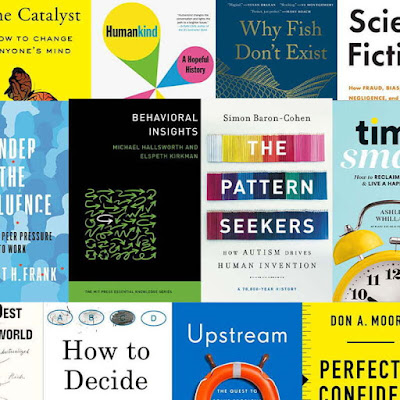What is this all about? [ENG]
From business and marketing to public health and education; from art and poetry to social policy and economics; from law and institutions to psychological therapy and language learning, this is –including what we feel and what we think- all about human behavior. The fundamental question is: What leads us to behave as we do and what can be done do to better manage our behavior? To know this is relevant for everyday life (To keep yourself from procrastinating watching memes on Facebook while you should be working on your thesis research, for example) but it’s even more important if what we want is to address the most urgent problems we are currently facing as a society. End hunger, inequality, poverty, racism, sexism, terrorism, and illiteracy; provide everyone with high quality education and access to decent and sufficient healthcare ; decrease to the lowest possible the amount of violence and psychological uneasiness that people experiences and, in general, to create the conditions required to guarantee the wellbeing of every person, everywhere in the world, now and in the future.
The
ideal of building “a better world” has nothing original on it. To quote
Beaudelaire (radically out of context, of course), this is a dream that has
been dreamt by everyone but realized by none.
Utopic and scientific socialism, the comtean positivism and practically
every modern science has had for ethical imperative the creation of a better
world, and very frequently these goals have been called naïve and unattainable.
Are they so? we don’t think so. The problem here is that even if human affairs are
the topic we have discussed more upon during the entire history of human
thought, little of what has been said
has been of any use for a true understanding and control of those same human issues.
Do we pretend to create this new revolutionary view on human behavior all by ourselves and discard all of what has been said on the matter to the garbage can of
history and thought? . Hell no! Most of what we need to know is already there (in our opinion, we
owe the building blocks of it to B.F. Skinner and Charles Darwin). We just want to make this knowledge widespread, mainstream and easy to understand, so we can start making use of scientifically
designed interventions and behavioral technology aiming towards socially relevant goals. (and
not only to increase profit, because that’s already widely done. Have you heard
about Facebook?)
To talk about Behavioral Public Policy is to talk about public policy build not only from statistical evidence but also from scientifically acquired knowledge about the factors that control human behavior. As it exists today, behavioral public policy resorts mainly to insights from the field of behavioral economics that in its turn relies on cognitive psychology. The problem we see here is that cognitive psychology usually holds a very misguided understanding of behavior analysis, and it keeps it from appreciating the potential points of convergence between the two disciplines. In addition to this, what if we told you that the greatest “discoveries” of behavioral economics are almost perfect and practical equivalents of facts that behavior analysis had put over the table and practiced since more than 50 years ago?. It won’t be simple to disentangle the conceptual mess that might arise from here, but we promise to our best to be clear and didactic whenever we go over this topic.
To talk about Behavioral Public Policy is to talk about public policy build not only from statistical evidence but also from scientifically acquired knowledge about the factors that control human behavior. As it exists today, behavioral public policy resorts mainly to insights from the field of behavioral economics that in its turn relies on cognitive psychology. The problem we see here is that cognitive psychology usually holds a very misguided understanding of behavior analysis, and it keeps it from appreciating the potential points of convergence between the two disciplines. In addition to this, what if we told you that the greatest “discoveries” of behavioral economics are almost perfect and practical equivalents of facts that behavior analysis had put over the table and practiced since more than 50 years ago?. It won’t be simple to disentangle the conceptual mess that might arise from here, but we promise to our best to be clear and didactic whenever we go over this topic.
That
said, there’s nothing much to add. Here you’ll see (and read, we hope) some articles and contents related to the application of the experimental analysis of
behavior to the solution of social problems and, once in a while, some posts
with comments and practical examples to illustrate how the principles of behavior
analysis work in everyday life.
Follow this page and share it with your friends! We will be looking forward to exchange opinions, doubts and arguments with all of you!
Follow this page and share it with your friends! We will be looking forward to exchange opinions, doubts and arguments with all of you!





Comentarios
Publicar un comentario